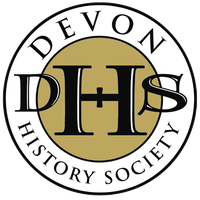Bragg, Misses Margaret and Susan, Weston Lodge, Mannamead, Plymouth (now Blake Lodge)
Margaret (1839 – 1919) and Susan (1841 – 1924) Bragg[1], were born in Newcastle-upon-Tyne, the two youngest daughters of Charles Bragg and Susanna née Balkwill, born in Plymouth. Both the Braggs were members of the Society of Friends, and Charles’s mother, Margaret, was well-known for her Quaker ministry. His father Hadwen Bragg had been a draper and mercer, and Charles followed him into that line of business, listing himself on censuses as a silk mercer, although he also had interests in the Derwent Iron Company and described himself in 1851 as an iron manufacturer.
The family moved away from Newcastle when Margaret and Susan were children, to Lintz Green House in Tanfield, south of the Tyne and close to Gateshead. The area was being developed by new coal mines but Lintz Green House, a large early nineteenth century house, stood in its own parkland. Through Charles’s sister Rachel the Braggs were cousins of the Priestman family of Bristol, early supporters of woman suffrage, and at the 1871 census Susan and her elder sister Elizabeth were staying with them in Westbury on Trym.
When Charles died in 1874 Susanna, Margaret and Susan decided to move down to Plymouth. Susanna had grown up there and members of her family the Balkwills, were still prominent figures in the town. The women settled in Weston Lodge, in Mannamead, then just outside the Plymouth boundary. The earliest mention of them in Devon was in 1879, when Mrs Bragg is recorded as making a donation of £3, considerably in excess of the next highest donation, to the Plymouth Mendicity Society. The scale of the donation probably indicates that the family were well off.[2]
Susanna died on 1 February 1880.The two sisters became involved in charitable work with, for example, the Ladies’ Committee of the Plymouth Relief Fund,[3] the Ladies Temperance Association,[4] the Friendless Girls’ Society,[5] the Seamen’s Mission,[6] the South Devon and Cornwall Industrial School,[7] the Young Women’s Christian Association,[8] the Discharged Prisoners’ Aid Society[9] and the Plymouth Convalescent Home.[10] It is not always possible to tell which Miss Bragg was involved, but it appears that Susan Bragg was the more active: it is she who was on the Board of Directors of the Plymouth Coffee House company,[11] and is named as undertaking prison visiting[12] and as the secretary of the Plymouth Peace Association from 1892.[13]
Susan Bragg was also involved in educational activities, although it has not proved possible to identify where she herself taught. She became the co-ordinator for the Plymouth Centre for the Cambridge Higher Local examinations,[14] was a member and Vice-President of the Three Towns Branch of the Teachers’ Guild formed in 1890,[15] and a supporter of the Cambridge University Extension movement and its associated Plymouth and District Students’ Association.[16]
Both the Misses Bragg attended the ‘Great Meeting’ in support of the extension of the Parliamentary franchise to women, held in the Plymouth Guildhall in December 1882, and immediately became subscribers to the Bristol and West Suffrage Society.[17] They were also present at the launch of the Three Towns Women’s Liberal Association (WLA), where the object of women’s suffrage was specifically included in the aims of the Association.[18] After the Three Towns WLA went into abeyance, they were actively involved in the formation of its successor, the Plymouth WLA, in 1888, hosting a ‘meeting of ladies’ at Weston Lodge to consider its formation; and one of them, probably Margaret, became a Vice President of the Association, chairing an early meeting [19]. Susan became a member of the Committee and a delegate to the Bristol WLA in 1889.[20]
Although the WLA was concerned with active politics in all sorts of areas and not exclusively with women’s suffrage, the Braggs remained members of the Bristol and West Suffrage Society. In 1890 when the Women’s Suffrage Journal was collecting signatures of householders and ratepayers who would be eligible to vote were it not for their gender, in order to petition for an alteration in the laws to enable such women to exercise the Parliamentary franchise, two of the Devon women who signed the petition were Margaret and Susan Bragg of Weston Lodge, Mannamead, noting that they were in the Tavistock Parliamentary Division.[21]
After 1895 the accounts of the Braggs’ participation in local affairs reduced. A Miss Bragg reported to the Plymouth WLA on her attendance at conference in the summer of 1895.[22] Miss Susan Bragg’s name appeared for the last time in connection with the Higher Local Examinations in October1895.[23] The Braggs had decided to move away from Plymouth. They settled in Street and then in Winscombe, in Somerset. Margaret died in 1919 and Susan in 1924. Susan left over £15,500.
Entry created by Anne Corry and Julia Neville, February 2019
[1] Census and family information from www.ancestry.co.uk
[2] Western Morning News (WMN), 13 Jan 1879.
[3] WMN 28 Jan 1881.
[4] WMN, 20 Dec 1882.
[5] WMN, 18 Mar 1881.
[6] WMN, 1 Dec 1882.
[7] WMN, 10 Apr 1884.
[8] WMN, 4 Aug 1884.
[9] WMN, 13 Apr 1883.
[10] WMN, 11 Feb 1885.
[11] WMN, 1 Dec 1879. She resigned her directorship in 1891 (WMN 21 Nov 1891), having been on the Board since the company was founded. She was replaced by Frances Latimer (q.v.)
[12] WMN, 20 Feb 1895.
[13] WMN, 28 Oct 1892.
[14] From March 1887 (WMN 22 Mar 1887) she regularly advertised as the person from whom forms of entry could be obtained.
[15] WMN, 30 Oct 1891; 19 Jun 1893.
[16] WMN, 25 Apr & 24 Sep 1892.
[17] Women’s Suffrage Journal (WSJ), Jan 1883, 8, 17.
[18] WMN, 4 Apr 1884.
[19] WMN, 20 & 28 Jan 1888.
[20] WMN, 28 Jan 1888; WSJ Nov 1889, 133.
[21] WSJ Nov 1889, 133.
[22] WMN, 25 May 1895.
[23] WMN, 12 Oct 1895.
